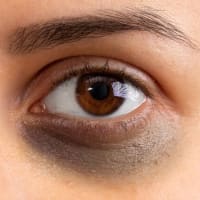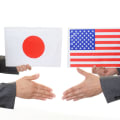Me Hey, Dali. In English also, are there any words or expressions that are preferentially used by men or women? For example, is the English spoken by O-ne-e (a cross-dressing male gay) peculiar?
私 ねえ、ダリちゃん。英語でも「女言葉」や「男言葉」ってあるの? 例えば「おねえ」の英語は違うの?
Dali I think that the differences between “feminine” and “masculine” English are so subtle that almost nobody can say exactly the specific words or expressions that might be exclusively used by men or exclusively used by women. For example, when you are reading an actor’s lines or an actress’s lines, you probably cannot distinguish which is the actress and which is the actor.
ダリちゃん わしは英語での「女言葉」と「男言葉」の違いはとても微妙なので、これは男性がもっぱら使う言葉や表現、これは女性がもっぱら使う言葉や表現と正確に言える人はほとんどいないと思う。例えば、男優のセリフと女優のセリフを読んでも、どっちがどっちか判断できないと思う。
Me Are there really no such words or expressions?
私 本当に、無いの?
Dali Well, there is only one example that I feel is feminine. It’s the word, “so” when used to mean “very.” Of course, a man also uses the word, “so,” but mostly only in its other meanings. Something like, “So, yesterday, I went to work.” Or in another usage, “He was lazy, and so, unreliable.” These usages of “so” do not sound feminine. The usage of “so” which is feminine may be like, “Yesterday, I watched a movie. It was so funny.” A man may say in this case, “Yesterday, I watched a movie. It was very funny.” Another example. A man says, “I was so tired last night that I fell asleep.” But only a woman would say, “I was so tired last night.” Period. That’s the only example I can come up with.
ダリちゃん そうだなあ、一つだけ女っぽい言葉の例がある。soをveryの意味で使う場合だね。もちろん男でもsoは使うがほとんどの場合veryと言う意味以外で使ってるね。例えば「それで(so)昨日仕事に行ったんだよ」とか。他には「彼はいいかげんだった。だから(so)信頼できなかった」など。このようなsoの使い方は女っぽくないね。女っぽいsoの用法として例えば、「昨日映画を見たけど、とっても(so)おかしかったわよ」など。男ならこの場合「昨日映画を見たけど、すっげえ(very)おかしたったよ」と言う。もう一つの例。男は「昨夜むちゃくちゃ(so)疲れてたので寝落ちしちゃった」と言うが、女は「昨夜とっても(so)疲れていたの」と言う。思いつくのはこれくらいかなあ。
Me Then, how about “fantastic” or “lovely”?
私 じゃあ、fantasticやlovelyなんかは?
Dali “Fantastic” is a very strong word. It means “excellent.” “Fantastic” is a word that is used by both men and women. “Lovely” means “nice,” but it is not so strong a word, and is also used by both men and women. Generally, I think that, rather than the word itself, it’s the pronunciation and accent which makes the expression sound feminine or masculine.
ダリちゃん fantasticはとてもきつい言葉だね。これはexcellentと言う意味だよ。fantasticは男でも女でも使うね。lovelyはniceと言う意味だけど言葉としてはそんなにきつくない。男でも女でも使うね。一般的に言ってね、言葉そのものと言うより、発音やアクセントのせいで表現が女っぽくなったり、男っぽくなったりするんじゃないかな。
Me How about “Oh my God” or “Oh my Goodness”?
私 Oh my God やOh my Goodnessは?
Dali You watch far too many TV dramas! “Oh, my God” is a strong expression. But it might be used by both men and women.
ダリちゃん テレビドラマの見すぎとちゃう? Oh, my Godは大げさな表現。でも男も女も使うかもね。
Me Then, how about “pretty”?
私 じゃあ、prettyは?
Dali …
ダリちゃん ……
Me “Marvelous”?
私 marvelousは?
Dali …
ダリちゃん ……
Me “Sweet”?
私 sweetは?
Dali Merciful heavens, you are so slow on the uptake, aren’t you? Sheesh! It is not the words that men and women say, it is the way they are said that makes a particular English expression sound feminine or masculine. It’s the pronunciation and the mannerism used while speaking. The wording itself has very little impact. Even though an expression might sound very feminine or masculine, this feeling is usually lost when written down. The difference almost always comes from the pronunciation and mannerism. It’s just not something that we can explain via written English, I think.
ダリちゃん もう~いい加減にして! あったま悪いんだから! 怒るわよ。使う言葉そのものじゃなくって言い方よ、男っぽく聞こえたり女らしくなっちゃうのは。話す時の発音や身振り手振りなのよ。言葉自体じゃないの! 女っぽく聞こえたり、男っぽく聞こえたりしたとしても文字にしてしまうとその感覚は消えてしまうのよ。つまりね、違いは発音と身振り手振り。文字だけからじゃわからないわよ。
Key Words (キーワード)
feminine: 女の、女らしい、女性の
masculine: 男の、男らしい、男性の
subtle: 微妙な、とらえがたい、緻密な
exclusively: もっぱら、まったく~のみ、排他的に
actor’s line: 男優の台詞
actress’s line: 女優の台詞
distinguish: 識別する、はっきり区別する
lazy: 怠惰な、不精な、けだるい
unreliable: 当てにならない、信頼できない
come up with: ~に追いつく、示す、提案する
fantastic: 空想的な、気まぐれな、素晴らしい
excellent: 優秀な、~に優れて
pronunciation: 発音、発音の仕方
merciful heavens: そりゃ大変
uptake: 理解(力)、取り込み、摂取
sheesh: おい、くそ
mannerism: (話し方、動作、身振りなどの)独特の癖
explain: 説明する、明白にする
Comments (コメント)
Japanese is a language, in which there exist specific words or expressions that may be exclusively used by men or exclusively used by women, especially in case of spoken language. I, believing that there are surely such examples also in English, asked Dali about it, who, initially, seemed to have trouble answering. After all, it’s the pronunciation and the mannerism used while speaking that makes English sound feminine or masculine.
日本語は、特に話し言葉は「女言葉」と「男言葉」が比較的はっきりしている言語である。僕は英語でもそういうのがきっとあると思ってダリちゃんに聞いたんだけれど、当初ダリちゃんは答えに窮していたようである。結局、話し方、ジェスチャー、抑揚、アクセントなんだろうね、男女を印象付けるのは。






















